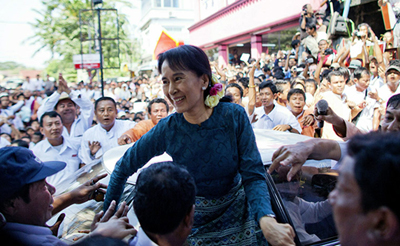Burma’s Recent Events
by Jen Lue / February 15, 2011 / No comments
 Burma general election counting votes in November 2010. Photo: EPA
Burma general election counting votes in November 2010. Photo: EPA
2010 was a pivotal year for Burma. On November 7, the military junta orchestrated the country’s first national elections since 1990, when the National League of Democracy (NLD) won the popular vote. The government refused to recognize the results of the 1990 election and placed NLD leader Aung San Suu Kyi under house arrest.
The 2010 elections were part of the military’s seven-step “Roadmap to a New Democratic State,” a resolution that, in theory, will transition Burma into a democracy. Critics, however, called the elections a sham. A quarter of the seats in the newly created bicameral parliament are reserved for the military. Any constitutional change requires a parliamentary majority of more than 75 percent—meaning that the military can vote down any reform.
While some Burmese pro-democracy groups saw the elections as a step toward democracy, the NLD boycotted the 2010 elections, saying they would not register as a party under the unjust election laws of the junta. As a consequence, some of NLD’s members broke from the organization and formed the National Democratic Force (NDF), an opposition party that participated in the election and gained 16 seats in the parliament.
 Aung San Suu Kyi greets supporters after her November 2010 release. Photo: Getty Images
Aung San Suu Kyi greets supporters after her November 2010 release. Photo: Getty Images
Five days after the election, Aung San Suu Kyi, a Nobel Peace Prize laureate who had spent 15 of the past 21 years under house arrest, was released. Her freedom was seen by many as an attempt to legitimize the electoral proceedings in the eyes of the international community. But if that was the case, the attempt was not successful; after Aung San Suu Kyi’s release, a U.N. human rights committee condemned Burma’s elections, saying that they were neither free nor fair.
These events are the latest in a long string of diverse diplomatic responses, ranging from economic sanctions and isolationism to non-interventionist policies and limited engagement.




